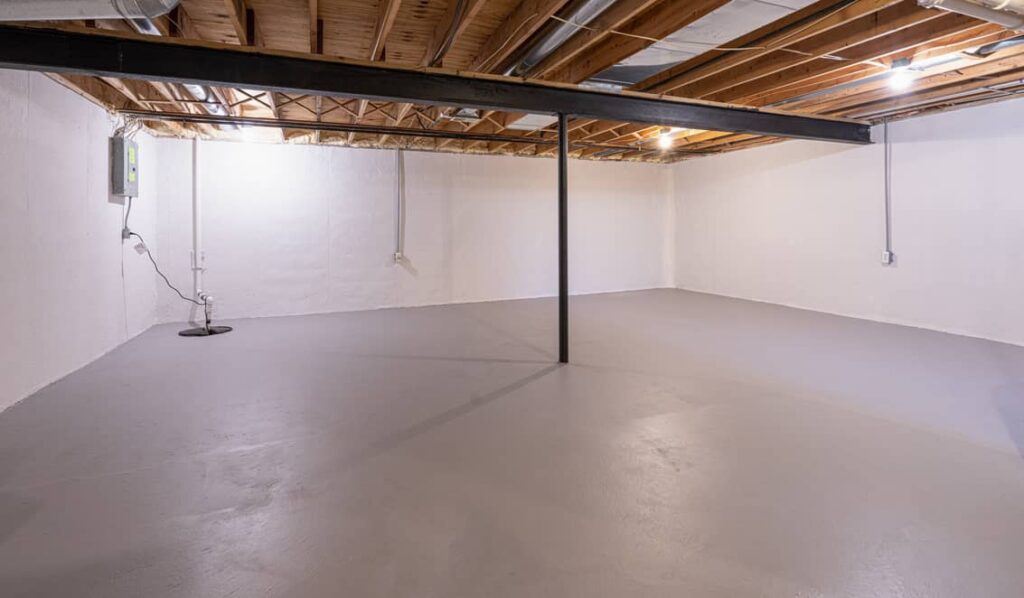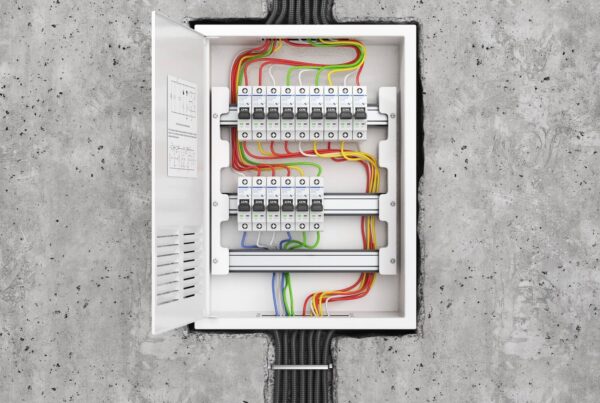
When buying a home, finding one with a basement that has been built out is a nice luxury. The functionality of a basement that has furniture and a great ambiance is abundant for a homeowner. However, nothing is perfect no matter the luxury. There are maintenance needs and things you should be aware of to ensure that your basement is properly maintained. For example, have you ever considered the humidity levels in your basement? What is a good humidity level for a basement? Generally speaking, 30 to 50 percent, however, percents can depend on the climate and basement.
Let’s take a look below at some more details regarding the humidity levels of a basement.
How Are They Different In Winter And Summer
Believe it or not, the basement humidity levels will vary depending on the time of year. The summer months might have an excess humidity level as compared to the winter months. This is due to the outdoor temperatures. Let’s take a look at some differences between the two.
- Summer months – typically a 60 percent humidity level. Hot and humid air is abundant and can get trapped inside the basement. If you don’t have a way to reduce the humidity levels between 30 and 50 percent, you can expect an increased mold issue.
- Winter months – during the cooler months, the humidity levels will drop. The air is dryer and there is a lot less moisture gaining access to your basement. The goal here is to keep your humidity levels between 25 and 40 percent. The colder the air gets the lower your humidity levels will be. This could cause some health issues such as dry skin, respiratory illness, or nosebleeds to name a few.

Why Does This Happen
Just like with humidity levels outside of your home, there are many reasons for increased humidity levels in the basement. Let’s take a look at what they might be:
- Poor insulation – homeowners often forget about basement insulation. If it is old or damaged, moisture can easily get into the basement and cause an increase in humidity levels.
- Laundry – doing laundry in the basement and having an exhaust vent that leaks will increase humidity levels in the basement.
- Sump pump – if your sump pump is not working properly, it cannot remove the excess water from the basement. This added moisture will increase humidity in the basement.
- Poor Gutter system – when gutters become clogged or damaged, they are not able to relocate rainwater away from the home. The water settles near the foundation and seeps into the ground. This added moisture finds its way to the basement and will increase the humidity levels.
- Leaking pipes – having a leaking pipe will always add moisture to the home. Also, it will damage any area of the home where the leaking water can gain access.
How Can I Prevent This
Experiencing high humidity levels is likely the result of the reasons listed above. How can you fix your humidity levels? Let’s take a look:
- Dehumidifier – the easiest way to remove moisture from the air in your basement is to install a dehumidifier. The HVAC system can only remove so much moisture, so you can help it by installing a dehumidifier to balance your humidity levels.
- Repair any leaks – having pipes that leak is never fun. You will want to repair them as soon as possible. Not only will leaking pipes increase your humidity levels, but they will also damage your home.
- Repair Cracks – if you happen to have cracks in the foundation walls of your basement, seal them up right away. Sealing up any cracks will keep the moisture out of the basement.
- Install a Hygrometer – this item will measure the humidity levels in your home. This allows you to keep track of when you need to adjust your air conditioning or heating.
- Exhaust fan – installing exhaust fans in a basement will work in the same manner as your bathrooms. They will suck out the humidity and moisture from the air in the room.
Other Recommended Maintenance
Now that you are aware of what the humidity levels in a basement should be, you can follow up by determining if your air conditioner is dehumidifying. Typically, an air conditioning system will dehumidify. However, you might need to place a dehumidifier in the basement to increase the rate of moisture removal.
Next, if you aren’t sure how to keep your humidity levels balanced in your basement, you should read up on your best options. Improving air quality in the basement and the rest of your home should be a priority. Anything that improves your family’s health should be your focus.
Lastly, in some homes, there is a sump pump in the basement. While in other homes there is no sump pump. Be sure to read up on why there might not be a sump pump in the basement. A sump pump that isn’t working properly will contribute to added moisture levels in the basement.

When Do I Call A Professional
Humidity levels in a basement can be problematic. The higher the humidity levels the more issues arise. As a homeowner, you want to prevent a breeding ground for mold. Limiting the humidity levels in your basement will allow you to keep mold and mildew from growing. Be sure to call on your local home inspection team to inspect the basement and your home.
Conclusion
Keeping humidity levels where they should be can be a huge challenge for a homeowner. Typically, monitoring humidity levels is not the first item of business on a homeowner’s list of things to do. Purchasing the right equipment that will communicate with your HVAC system is your best bet.
If you aren’t sure what to install or if your current HVAC system can sufficiently handle the humidity levels, call on your local home inspection team. Reach out to Boggs Inspection Services to get your basement inspected during a home inspection in Lacey, WA, and surrounding areas.



